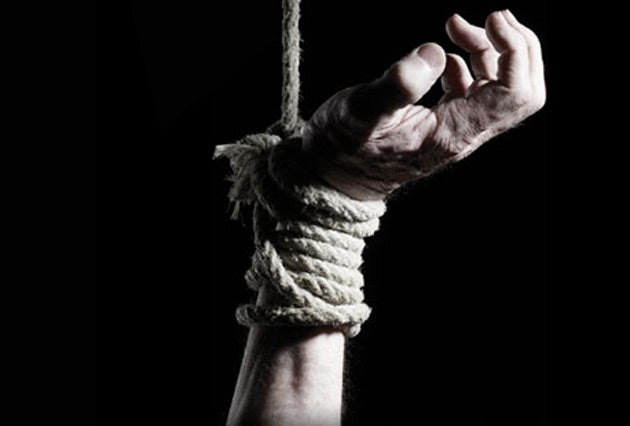In the Penal Colony, Music Theatre Wales, Linbury Theatre

Your support helps us to tell the story
From reproductive rights to climate change to Big Tech, The Independent is on the ground when the story is developing. Whether it's investigating the financials of Elon Musk's pro-Trump PAC or producing our latest documentary, 'The A Word', which shines a light on the American women fighting for reproductive rights, we know how important it is to parse out the facts from the messaging.
At such a critical moment in US history, we need reporters on the ground. Your donation allows us to keep sending journalists to speak to both sides of the story.
The Independent is trusted by Americans across the entire political spectrum. And unlike many other quality news outlets, we choose not to lock Americans out of our reporting and analysis with paywalls. We believe quality journalism should be available to everyone, paid for by those who can afford it.
Your support makes all the difference.As an expression of ecstatic joy in ultimate self-harm, Kafka’s ‘In the Penal Colony’ has never been bettered. A prison officer describes in fetishist detail how he intends to put a condemned man to death, using a contraption which will carve the victim’s judgment on his naked back as he dies by slow degrees.
But at the climactic moment, he himself climbs into the machine: he doesn’t want to share his masochistic pleasure with anybody. As usual with Kafka, the condemned man’s crime had been an inability to dance to a uniformed madman’s tune: institutional injustice is the subtext, with eerie pre-echoes of what the SS would do to their victims in Auschwitz.
I will never forget the young Steven Berkoff playing the executioner-victim in his theatre adaptation of this story in 1969. And it’s no surprise to find Philip Glass turning this fable into an opera: his musical repetitions offer a perfect reflection of Kafka’s verbal ones, as the beauties of the torture machine are extolled in loving litany.
And for the second time in a week we’ve been reminded just how little staging is required for the creation of operatic magic. At the Peacock Theatre, British Youth Opera worked wonders with a few chairs and some basic lighting to bring Stephen Oliver’s elaboration of Peri’s ‘Euridice’ charmingly to life. For the British premiere of Philip Glass’s ‘In the Penal Colony’, the black box of the Linbury Theatre contained a chair, a table, and a ladder disappearing into the heavens. The presence of a string quintet reinforced the Auschwitz atmosphere, as did the striped overalls worn by both the officer and his victim.
But this was a three-handed drama, with the condemned man – as Gerald Tyler played him – eloquent in a silent role, and the main dialogue taking place between the officer (Omar Ebrahim, projecting the fervour of a true believer) and an appalled but impotent Visitor, sung with burning expressiveness by tenor Michael Bennett. The string quartet did the usual Glass thing, but very beautifully, their patterned textures changing as though seen through a turning prism, while the vocal lines were woven above them; the shocking denouement was pure film-noir. Catch this show – whose only flaw was an amplification which sometimes obscured the words - in Basingstoke next week, or in Oxford, Aberystwyth, and Newport thereafter.
Join our commenting forum
Join thought-provoking conversations, follow other Independent readers and see their replies
Comments